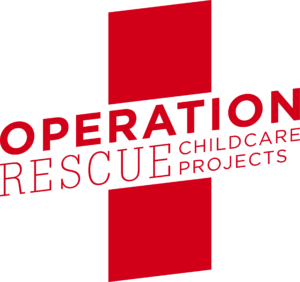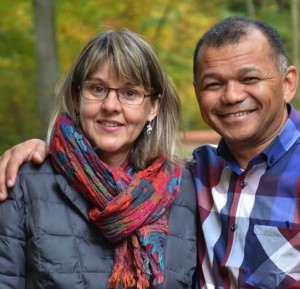 When Christina and Marciano Texeira first went to Ethiopia in 1997 to help poor children, Marciano worked in a home for boys and Christina was busy with their own two boys at home.
When Christina and Marciano Texeira first went to Ethiopia in 1997 to help poor children, Marciano worked in a home for boys and Christina was busy with their own two boys at home.
Marciano often did not agree with the concept of the childrens’ home and Christina was confronted daily with the poverty of the street children who came begging at her window or whom she met at the garbage dump where they were searching for food. They started looking after these children by giving them food, finding new clothes for them, washing them, cutting their hair etc.
What started with helping a handful of children at home grew and grew until in 2000 ORE Ethiopia was founded. The Ethiopian government acknowledged the childcare project in 2001. Today the project, which is situated in Mekelle, northeastern Ethiopia, has 500 children. Another two project centres with almost 200 children were opened in Adigrat and Adwa, cities in the north of Mekelle in the border region of Eritrea.
The Texeiras always planned that the project would be led by an Ethiopian one day, and wanted it to be an Ethiopian project rather than some sort of Swiss centre in the middle if Ethiopia. Of course there are signs of western influence, like raising the standard of hygiene etc. but from the beginning they worked together with locals like Getachew Tesfay (one of the first members of staff who soon became Marciano’s right-hand man) and the local social security office. In 2003 Getachew became manager of ORE Ethiopia. He and his staff continue to run the project, which is now in its fiftenth year. Marciano Texeira continues to support the work and visits the project regularly.
In 2004 the charitable organization “ORE Switzerland” was founded. Its members are volunteers who administer sponsorship schemes, finances and fundraising.
In 2005, the Teixeiras family moved to Brazil, Marciano’s home country. Three years later they founded “Operation Rescue Brazil” and opened a new project in Patos in August 2008, helping by now 300 children. Christina and Marciano then moved back to Switzerland in 2011 and Nilma, a Brazilian lady, became manager of the project in Patos. She is being supported by her employees and some volunteers.

